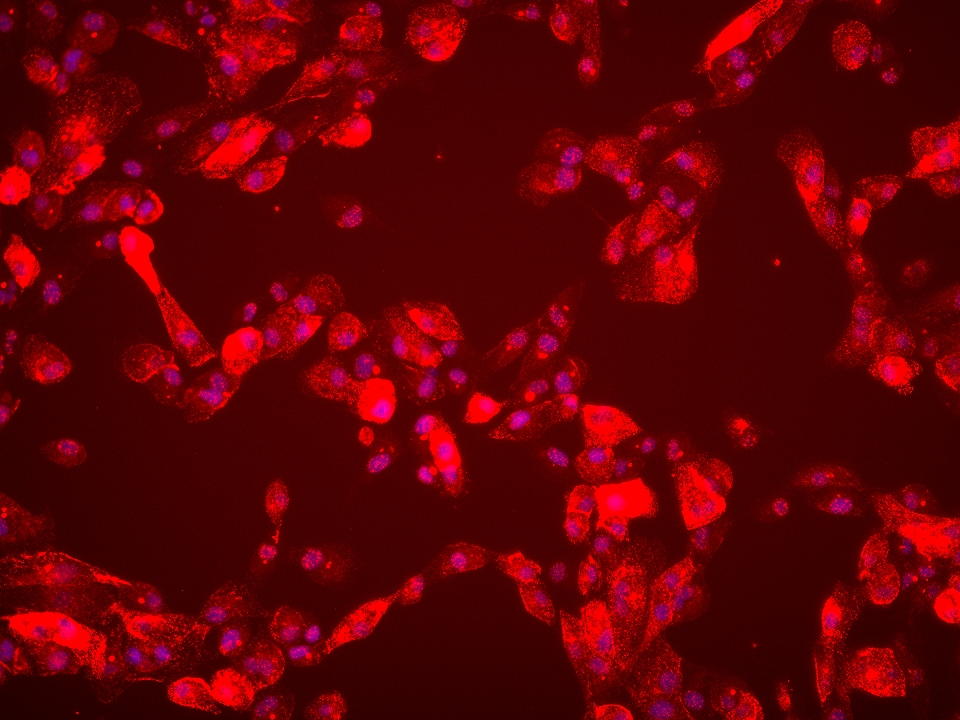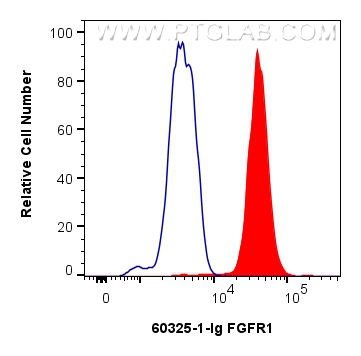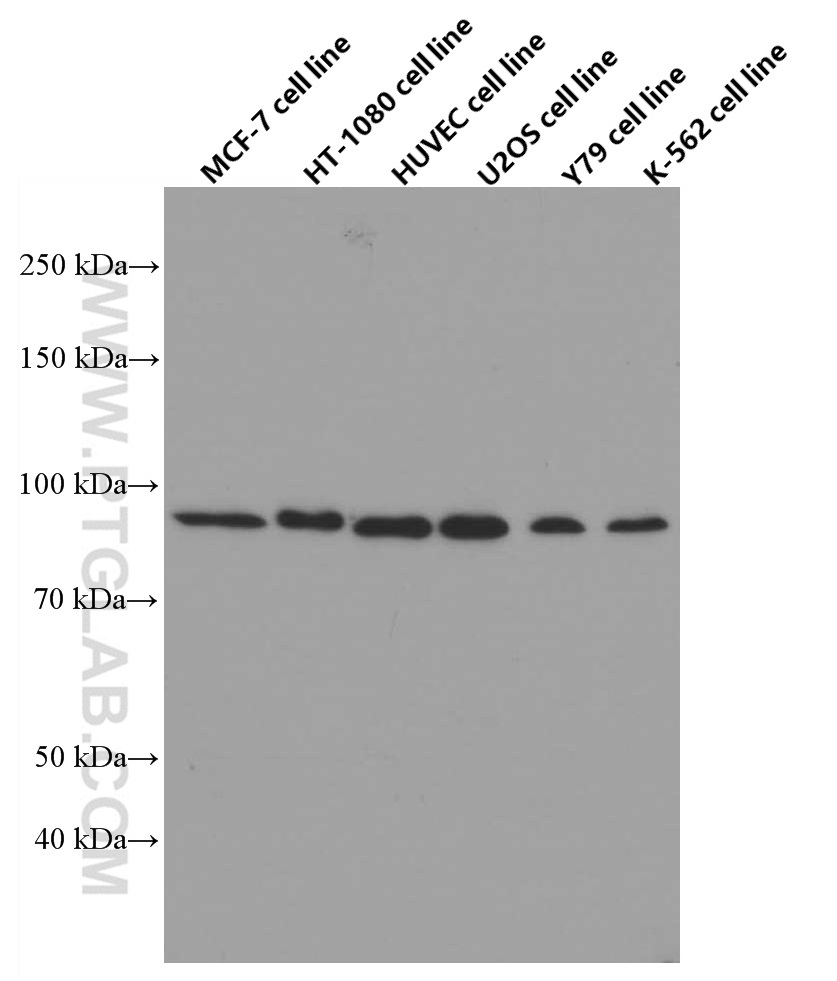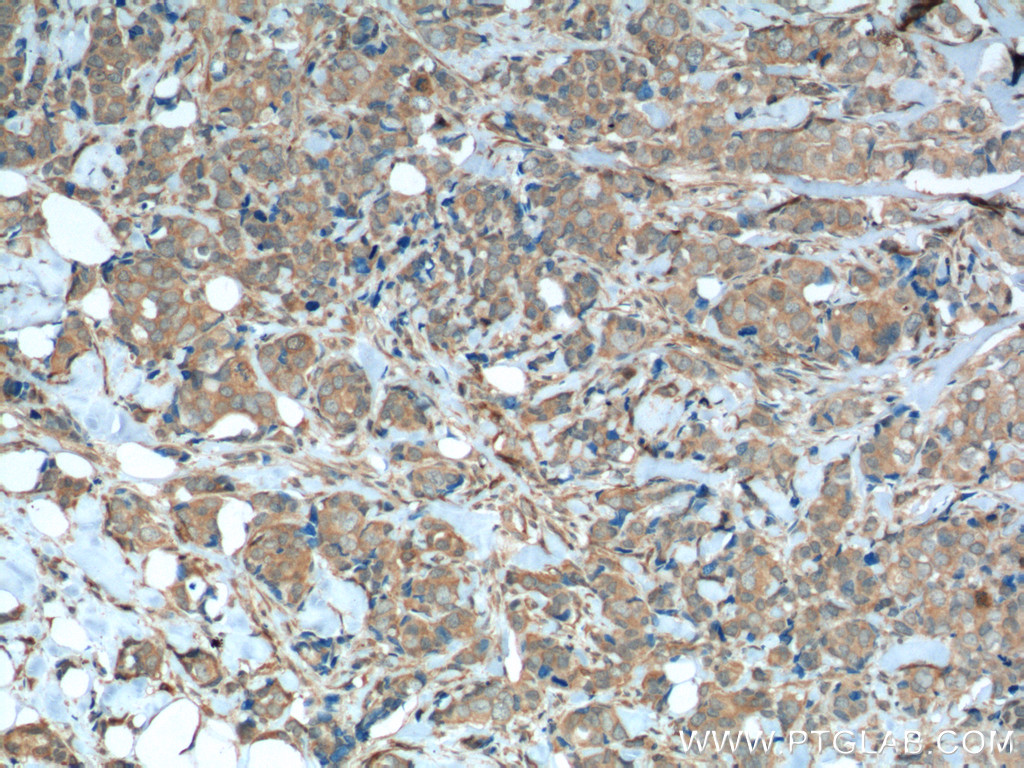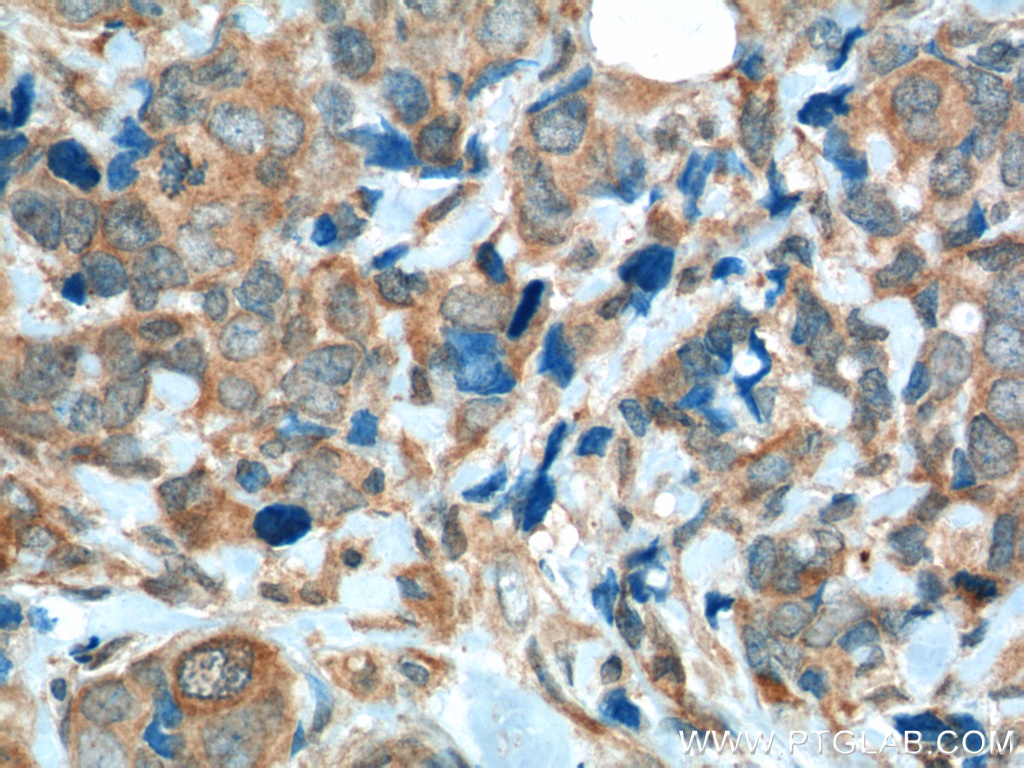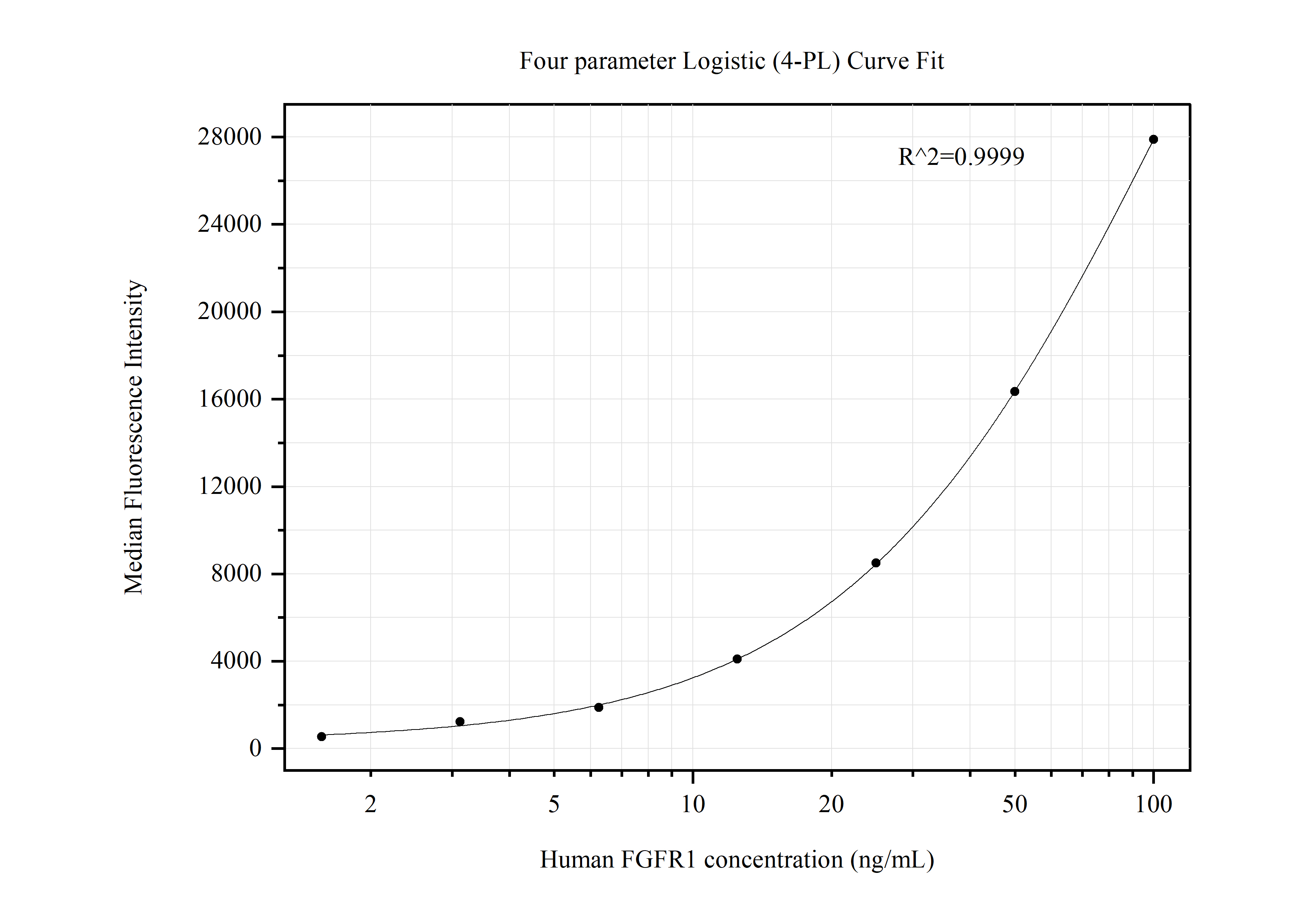验证数据展示
产品信息
60325-1-PBS targets FGFR1 as part of a matched antibody pair:
MP50453-3: 68982-1-PBS capture and 60325-1-PBS detection (validated in Cytometric bead array)
Unconjugated mouse monoclonal antibody pair in PBS only (BSA and azide free) storage buffer at a concentration of 1 mg/mL, ready for conjugation.
This conjugation ready format makes antibodies ideal for use in many applications including: ELISAs, multiplex assays requiring matched pairs, mass cytometry, and multiplex imaging applications.Antibody use should be optimized by the end user for each application and assay.
| 经测试应用 | WB, IHC, IF/ICC, FC (Intra), Cytometric bead array, Indirect ELISA Application Description |
| 经测试反应性 | human |
| 免疫原 | FGFR1 fusion protein Ag3646 种属同源性预测 |
| 宿主/亚型 | Mouse / IgG2c |
| 抗体类别 | Monoclonal |
| 产品类型 | Antibody |
| 全称 | fibroblast growth factor receptor 1 |
| 别名 | EC:2.7.10.1, CEK, CD331, bFGF-R-1, BFGFR |
| 计算分子量 | 820 aa, 91 kDa |
| 观测分子量 | 91 kDa |
| GenBank蛋白编号 | BC018128 |
| 基因名称 | FGFR1 |
| Gene ID (NCBI) | 2260 |
| RRID | AB_2881435 |
| 偶联类型 | Unconjugated |
| 形式 | Liquid |
| 纯化方式 | Protein A purification |
| UNIPROT ID | P11362 |
| 储存缓冲液 | PBS only , pH 7.3 |
| 储存条件 | Store at -80°C. The product is shipped with ice packs. Upon receipt, store it immediately at -80°C |
背景介绍
Fibroblast growth factor receptor 1 (FGFR1) is a tyrosine-protein kinase that acts as a cell-surface receptor for fibroblast growth factors. FGFR1 has been implicated in diverse biological processes including embryonic development, cell proliferation, differentiation, migration, and tumorigenesis. Mutations in the FGFR1 gene have been associated with Pfeiffer syndrome, Jackson-Weiss syndrome, Antley-Bixler syndrome, osteoglophonic dysplasia, squamous cell lung cancer, and autosomal dominant Kallmann syndrome. Alternatively spliced variants that encode different protein isoforms have been described.
